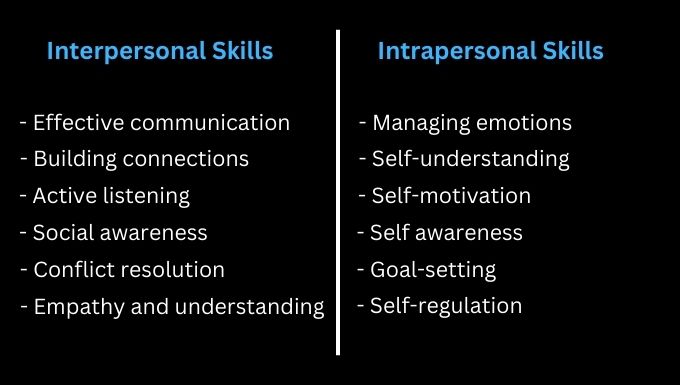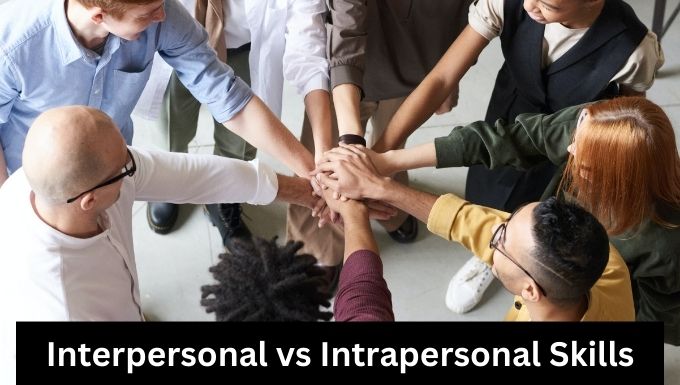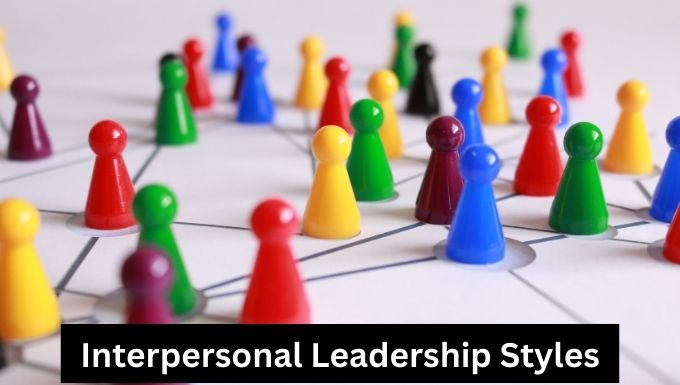In a fast-paced world, the ability to communicate effectively is crucial. Whether at the workplace, at home, or in social situations.
Do you know it’s not just the words that matter but also how you deliver them? And this is where interpersonal and intrapersonal skills step in as invaluable allies.
Now, you might be wondering what these terms mean and how they can empower your interactions and personal growth.
Don’t worry, and get ready to discover interpersonal vs intrapersonal skills.
You’ll also find out how to master these skills. Let’s get started…
Table of Contents
What Are Interpersonal Skills?
Interpersonal skills are the foundation of effective communication. The abilities that enable you to communicate, collaborate, and interact effectively with others. That fosters healthy relationships and teamwork. Some key interpersonal skills include:
Communication: A top-notch skill involves not only speaking but also listening.
It’s about expressing yourself and understanding others.
Empathy: This interpersonal skill involves understanding and sharing others’ emotions. This allows you to connect deeper. Show empathy by responding with genuine concern.
Conflict Resolution: Handling disputes and finding solutions that work for everyone involved. It’s not about winning a statement but about finding common ground.
Teamwork: Collaborate effectively with others towards a common goal. Thank the contributions of your team members.
Adaptability: Always be open to modifying your approach when needed. Think of it as being an acrobat, adapting to different situations.
Interpersonal Synonyms
Let’s explore words similar to interpersonal. These words will help you understand the word interpersonal better. Here’s a list of interpersonal synonyms:
Social: Reflective of friendship and engagement.
Relational: Involving connections and relationship dynamics.
Communal: Interactions within a community or group setting.
Personal: Concerned with private connections and interactions.
How to Improve Interpersonal Skills?
Improving your interpersonal skills takes time, effort, and consistent practice. Here, we’ll discuss 7 practical steps to help you enhance these crucial abilities.
1. Active Listening: Listen deliberately in conversations. Avoid distractions, keep eye contact, and nod to show engagement. This simple act works wonders.
2. Cultivate Empathy: Always try to see the world from another’s viewpoint. When someone shares his emotions or experiences, try to connect with them. It’s like stepping into his/her shoes for a moment.
3. Hone Your Communication: Express your thoughts clearly and concisely. Avoid using complex language or jargon that confuses others. Direct communication is often the most effective.
4. Embrace Adaptability: Be open to change. Practice flexibility in your relations, and be ready to adjust your approach based on the situation and the people you’re dealing with.
5. Maintain a Positive Attitude: Positivity is contagious. Approach interactions with optimism and kindness. Compliment others and offer encouragement when needed.
6. Learn from Feedback: Embrace feedback as a valuable tool to improve your abilities. When someone offers constructive criticism, consider it an opportunity to grow your interpersonal skills.
7. Consistent Practice: Remember, progress comes with practice. Don’t let a few setbacks frustrate you; integrate these skills into your daily life. Over time, you’ll notice significant improvement.
What are Intrapersonal Skills?
Intrapersonal skills are often called self-awareness or self-management skills. These are the abilities to comprehend and manage your beliefs and behaviours. They assist you in making better decisions and making a life that’s meaningful to you.
Some essential intrapersonal skills include:
Self-awareness: It’s like looking in a mirror at your inner world.
That means understanding your strengths, flaws, and values. Knowing yourself is the first step to personal development.
Emotional Intelligence: The ability to identify and manage your emotions. Emotional powers help you remain calm in stressful situations and create stronger relationships.
Self-motivation: Self-motivation is your inner supporter. This keeps you inspired when things get challenging. It’s like having never-ending determination.
Goal Setting: Goal setting is like mapping out your life. It gives you direction and purpose. Clear goals make you more likely to achieve your dreams and enhance your intrapersonal skills.
Resilience: Your superhero cape during tough times. It’s the ability to bounce back from setbacks, learn from them, and appear even stronger.
How to Develop Intrapersonal Skills?
Enhancing your intrapersonal skills involves training yourself to understand and organize your ideas and actions. Here are some specific steps to boost these skills:
1. Self-Reflection: Spend time meditation. Think about your values and beliefs. And know what matters to you. This helps you gain a more profound sense of yourself.
2. Journaling: Keep a diary of your ideas and emotions. It’s like chatting with yourself. That helps you process your emotions and gain clarity.
3. Mindfulness Meditation: Practice mindfulness to stay in the moment. This technique allows you to observe your thoughts and emotions without judgment. It’s like tuning into your inner radio station.
4. Set Meaningful Goals: Define clear and meaningful goals for yourself. These goals act as your guiding light and allow you to make decisions that align with your values and aspirations.
5. Positive Self-Talk: Pay attention to your talking style. Replace self-criticism with self-motivation. It’s like becoming your prominent supporter.
6. Seek Feedback: Ask for feedback from trusted friends or mentors. They can provide helpful insights that you might not see alone.
7. Learn from Mistakes: Embrace your mistakes as opportunities for growth. Reflect on what happened wrong and how you can improve. It’s like turning setbacks into stepping stones.
Interpersonal vs Intrapersonal Skills
Let’s look at the difference between these skills through an image table.

FAQs
What is interpersonal behaviour?
Interpersonal behavior refers to how people interact socially.
It involves communication, actions, and attitudes during social interactions. Positive interpersonal behavior means being an excellent listener, showing empathy, and being respectful.
Is interpersonal skills a professional skill?
Yes, interpersonal skills are professional skills. They involve effective communication, teamwork, empathy, and relationship-building. They’re crucial for successful interactions with colleagues and clients.
Conclusion
Both sets of skills are invaluable assets on your life journey. Interpersonal skills enhance your communication and interpersonal leadership skills and encourage collaboration.
In contrast, intrapersonal skills empower your internal world, leading to personal growth. So, develop a balance between these two skill sets. This allows you to thrive in your relations with others and yourself.
So, take advantage of these skills to achieve success and satisfaction in life. Hope you find this article helpful. Let us know your thoughts in the comments.






